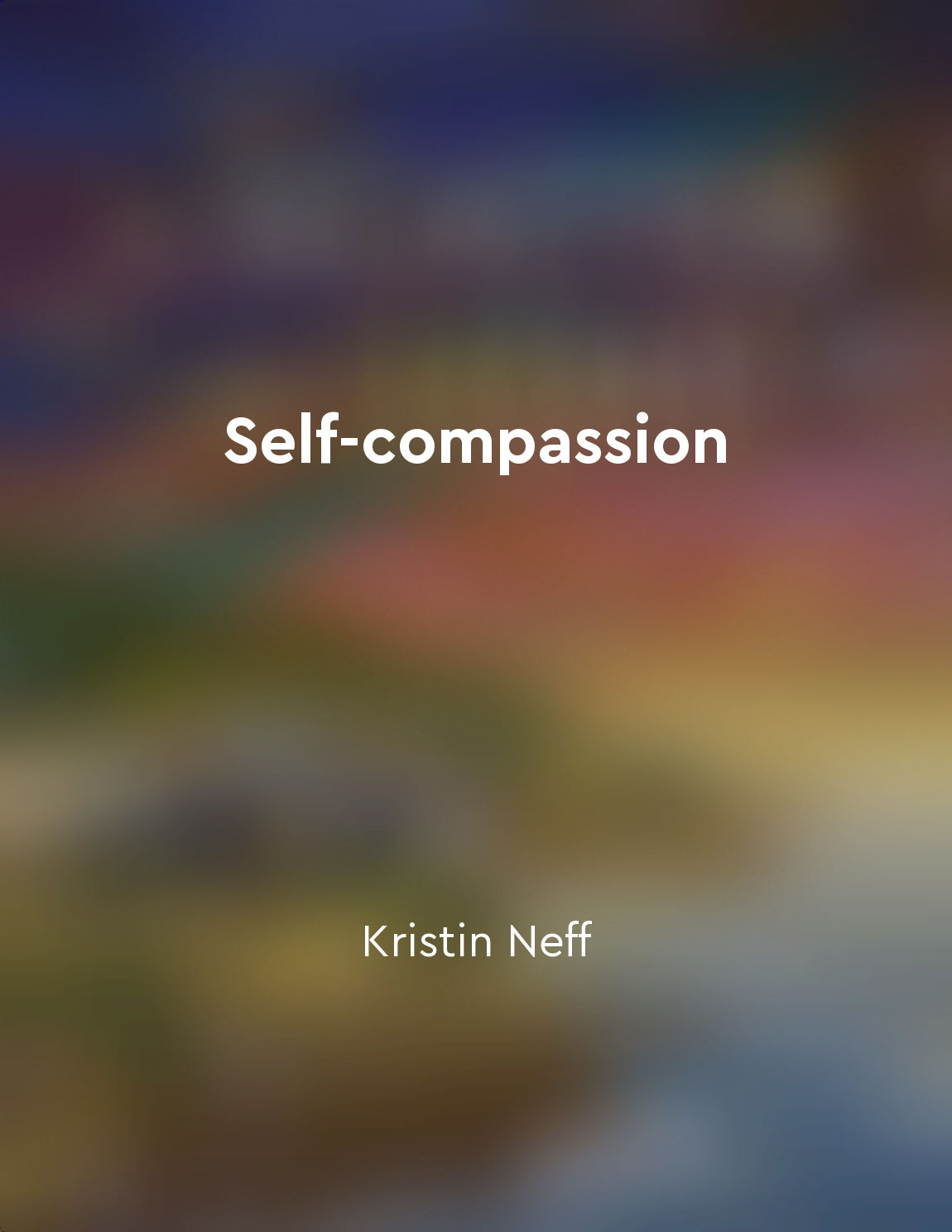It is about embracing oneself fully, flaws and all from "summary" of Self-compassion by Kristin Neff
Self-compassion involves recognizing our own humanity, acknowledging that we are not perfect beings. It is about understanding that everyone has strengths and weaknesses, and that it is okay to have flaws. By embracing ourselves fully, we can cultivate a sense of kindness and understanding towards ourselves. When we practice self-compassion, we are able to treat ourselves with the same kindness and care that we would offer to a friend in need. This means being gentle with ourselves when we make mistakes, and understanding that failure is a natural part of the human experience. By showing ourselves compassion, we can build resilience and inner strength. Embracing ourselves fully also means accepting our imperfections without judgment or self-criticism. Instead of berating ourselves for our shortcomings, we can approach ourselves with curiosity and a willingness to learn and grow. By acknowledging our flaws, we can work towards self-improvement in a healthy and constructive way. Self-compassion is not about ignoring our faults or pretending that they do not exist. It is about facing our imperfections head-on and recognizing that they are a part of who we are. By embracing ourselves fully, flaws and all, we can develop a sense of self-acceptance and self-love that is essential for overall well-being.- Self-compassion is the practice of treating ourselves with the same kindness, care, and understanding that we would offer to a loved one. It is about embracing our humanity, with all its strengths and weaknesses, and cultivating a deep sense of self-acceptance. By approaching ourselves with compassion, we can foster a greater sense of inner peace and contentment in our lives.


